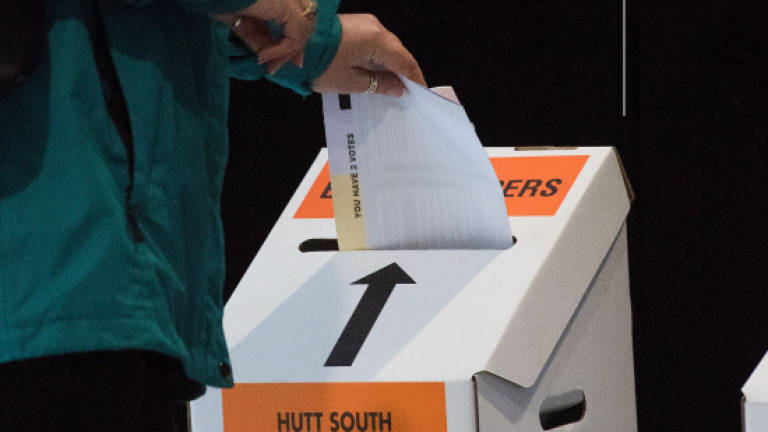Five key issues in the New Zealand election

WELLINGTON: Here are five key issues in Saturday's New Zealand election, which pits Prime Minister Bill English's centre-right National Party against the opposition Labour Party led by Jacinda Ardern.
Immigration
Immigration has hit record levels of more than 72,000 new arrivals annually, reversing an outflow of 3,000 people in 2012.
A strong economy has attracted newcomers but Labour says they are pushing up house prices and straining infrastructure such as schools, roads, and hospitals.
It wants to slash migrant numbers by about 30,000, including some 22,000 student visas.
English wants to maintain current immigration levels, warning cuts risk stalling economic momentum and could create a shortage of skilled workers.
Housing
Housing affordability is a sensitive topic in New Zealand, where most prefer home ownership to renting.
Prices have skyrocketed in recent years, with Auckland rated the world's fourth most expensive city to buy a house in one recent survey.
Many Kiwis have been priced out of the market and blame offshore investors, particularly from China, for price hikes.
Labour would bar foreign buyers from purchasing residential properties.
National says this could hurt foreign investment and the housing problem can be alleviated by releasing more land for home construction and giving grants to first-home buyers.
Environment and climate change
While New Zealand markets itself internationally as "100% Pure", official data shows 60% of its rivers are too polluted to swim in.
Labour blames intensive dairy farming that has made New Zealand the world's largest exporter of milk products and has vowed to introduce a tax on water usage.
National says it will work with farmers to address the problem.
Ardern has also pledged to introduce carbon targets, declaring "climate change is my generation's nuclear-free moment".
English says the issue is "not a day-to-day concern" for voters and New Zealand has contributed to global climate change efforts by signing the Paris agreement.
Economy and tax
English's major pitch to voters has been that National guided New Zealand through the global financial crisis and has maintained healthy economic growth of about three percent.
"This campaign is about continuity and building on the strength that we have," he said.
He has portrayed Ardern as too inexperienced to look after the economy, suggesting she will run a tax-and-spend government.
Ardern stumbled by refusing to release a pre-election tax policy, which allowed National to run an effective scare campaign.
Labour hastily moved to rectify the situation but it cost Ardern valuable momentum.
Generation game
English is 55 and his party has been in office for three terms over the past nine years.
Ardern is 37 and has been opposition leader for less than two months.
She has targeted young voters with policies on education subsidies, housing and the environment, talking up the chance of generational change.
Labour's dramatic revival under Ardern suggests there is an appetite for change but it is unclear if that will translate into votes.
Over the past 60 years, New Zealanders have elected only one four-term government, while three have been ousted after three terms. — AFP